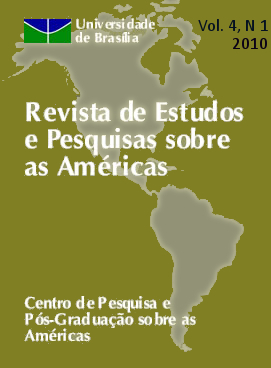A “BRIC”-variety of capitalism and social inequality: The case of Brazil
Abstract
The focus of this contribution is on the mode of capitalism within the industrialized sectors of “emerging markets”. Particularly in the context of the rise of the BRIC (Brazil, Russia, India and China) this question has gained considerable importance, also for the development of the world economy as a whole. The core question is whether the type of capitalism within these economies is similar to the capitalist variety of the triad, or diverges in more or less permanent ways. The article gives a preliminary answer to this question, by developing a rough sketch of a “BRIC” model of capitalism and illustrating this model with the case of Brazil. In terms of theory, the article extends the Comparative Capitalism (CC) perspective to the BRICs. On the one side, the focus is on the classical questions of CC, i.e. the determinants of economic development and the differences to other types of capitalism, on the other side the relationship between these varieties and social inequality. It argues that the “state-permeated market economies” of the BRICs rely on clans as a mode of social coordination. As demonstrated by the case of Brazil, this type of capitalism can be quite successful, but is based on a highly unequal distribution of economic and political resources.
Downloads
Downloads
Published
How to Cite
Issue
Section
License
The published material is the property of the Journal, and may be reproduced in whole or in part with indication of the source.
Copyright: Authors will be responsible for obtaining the copyright of the material used. Authors who publish in this journal agree to the following terms:
a)Authors retain the copyright and grant the journal the right of first publication, with the work simultaneously licensed under
the Creative Commons Attribution License which allows the sharing of work with acknowledgment of authorship and initial publication in this journal.
b) Authors are authorized to take additional contracts separately, for non-exclusive distribution of the version of the work published in this journal (eg, publish in institutional repository or as a book chapter), with acknowledgment of authorship and initial publication in this journal.
c) Authors are allowed and encouraged to publish and distribute their work online (eg in institutional repositories or on their personal page) at any point before or during the editorial process, as this can generate productive changes as well as increase the impact and the citation of the published work (See The Effect of Free Access).
















